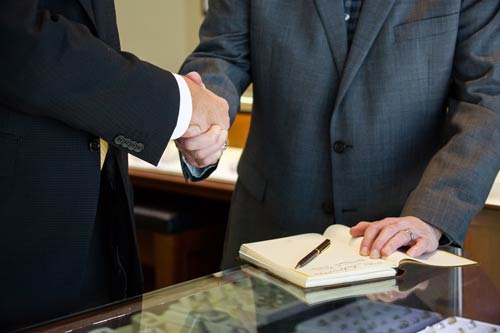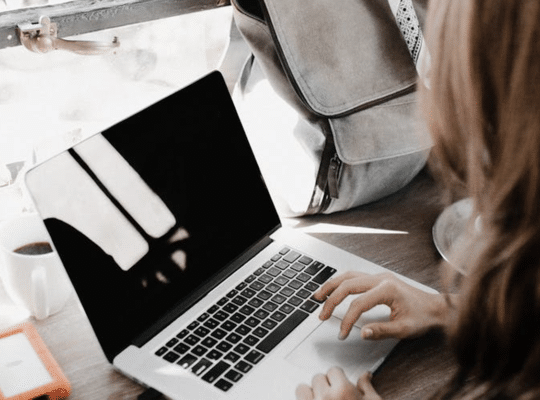December 19, 2022
Good morning! (Fill in the blank) Don’t cry for me, _______________. (Hint: From the opera, Evita) More than a foot of snow here. Since much of it melted as it fell, it’s impossible to tell exactly how much we received. Now it’s cold and getting colder… down to maybe twenty-five below zero (-25 F) by mid-week they say.
- Malapropism o’ the day: It was the nightmare before Christmas and all through the house… Oooops.
- Wanna pack the pews at your local church? Put on a childrens’ Christmas pageant; people will come. Nothing fancy, doesn’t have to be long.
- Perhaps the ultimate irony: Some churches are cancelling Christmas Day services anticipating people will want to just stay home, stay warm, snuggle in. (NYT)
- Varying counter claims notwithstanding, the internet was invented forty years ago by Vint Cerf and a Stanford colleague, Robert Kahn.
- Little has changed in forty years, it still functions and operates much like those two guys drew it up.
- Could anyone have guessed how large it would become? They did, Cerf claims, as he still works to make it bigger.
- An inevitable comparison to the industrial age is perhaps a propos.
- The internet contributes to a plethora of unintended negative, sometimes evil consequences.
- As was true — and continues to be true — of industry, especially the smokestack industries; lots had to change and be made safer, cleaner, more in harmony with workers and the Earth.
- This is now more and more true of the internet.
- Its contributions to the overall quality of human life are enormous — as are its unintended negative consequences.
- Cerf says, “… to defend our safety and security and privacy… businesses should do more to rein in trolling, bullying, lying, and spying…”.
- “… this is a sociological and psychological problem as well… we need more critical thinking.” (Borrow, 2022)
- Want a simple, easy-to-understand lesson in economics?
- Look no further than global container shipping — and the rapidly changing ports of choice here in the United States.
- Remember the logistical nightmares on the West Coast a few months back, especially in Long Beach?
- Shippers are abandoning those traditionally popular ports in favour of the East Coast, especially New Jersey — and by meteoric increased volume along the Gulf Coast.
- Houston, TX, currently 5th in volume among all U.S. ports, increased its handling of container cargo by more than sixty percent (60%) over the last two years.
- (If Long Beach can’t do it, Houston will! Houston, we DON’T have a problem.)
- Without A Vision Consultancy finds this fascinating, utterly fascinating — and hopeful.
- Comparing geopolitical areas of the world, North America is more dependent on global trade — both imports and exports — than any other macro region of the world. (McKinsey)
- “Ours is an interdependent world, connected by global flows of goods, services, capital, people, data, and ideas. Global value chains have been built on these flows, creating a more prosperous world. However, in light of the (plague), Russia’s invasion of Ukraine, and years of rising tensions between the United States and China, some have speculated that the world is already deglobalizing. New MGI analysis finds a more nuanced reality. The world remains deeply interconnected, and flows have proved remarkably resilient during the most recent turbulence. Furthermore, no region is self-sufficient. The challenge therefore is to harness the benefits of interconnection while managing the risk and downsides of dependency — particularly where products are concentrated in their places of origin.” (McKinsey, 2022)
- Read more in depth: Globalization McKinsey
- “Ours is an interdependent world, connected by global flows of goods, services, capital, people, data, and ideas. Global value chains have been built on these flows, creating a more prosperous world. However, in light of the (plague), Russia’s invasion of Ukraine, and years of rising tensions between the United States and China, some have speculated that the world is already deglobalizing. New MGI analysis finds a more nuanced reality. The world remains deeply interconnected, and flows have proved remarkably resilient during the most recent turbulence. Furthermore, no region is self-sufficient. The challenge therefore is to harness the benefits of interconnection while managing the risk and downsides of dependency — particularly where products are concentrated in their places of origin.” (McKinsey, 2022)
- Do you enjoy charts, graphs, and lists?
- They provide a quick way — just like photogs — to succinctly understand the big picture and the message.
- When did you last think of textiles as a major source of pollution and a net negative on the environment? The data are staggering.
- Here are a few end-of-year gems from our friends at McKinsey: Charts, Graphs
- And, speaking of Liszts (Franz, that is), the Drucker Report is out and it proclaims Microsoft as the #1 best-managed public company in the United States.
- “Excellence is doing the right things well.” (Drucker)
- Of 902 public companies analyzed this year, only seven (7) of them scored sixty (60) or higher; i.e., one standard deviation, on a 100-point scale.
- The categories were:
- Customer satisfaction
- Employee engagement and development
- Innovation
- Social responsibility
- Financial strength
- Microsoft has been atop the Drucker pyramid for three (3) years in a row — but still is not among the true all star companies.
- There was some realignment in the rest of the Top Ten with a few technology companies dropping down several notches overall, with Apple and IBM holding on to #2 and #3, while General Motors and Whirlpool slipped into slots #4 and #5
- Doing well across all five (5) categories and doing it year after year after year?
- Only one (1) company, according to the Drucker algorithm (Credit Wartzman and Tang, 2022).
- The winner among winners — the best among the best? Procter & Gamble; P & G as they call it in Cincinnati.
- For you, my clients and faithful readers, I am enormously grateful you are here; thank you!
- Among the top ten buzzwords of the last several months is resilience.
- Exactly what is resilience? Work on your personal definition and application(s).
- Over the next several weeks these Musings will provide you with a few quotes from people other than YT which might help you to better understand resilience — and your development of it, or more of it.
- This week’s: “I am not what happened to me, I am what I choose to become.” (Jung)
- Reminds me of Without A Vision’s trademark, Patience and persistence along parallel paths.
Can’t help myself, sorry…
Stopping by Woods on a Snowy Evening
By Robert Frost
Whose woods these are I think I know
His house in in the village, though,
He will not see me stopping here
To watch his woods fill up with snow.
My little horse must think it queer
To stop without a farmhouse near
Between the woods and frozen lake
The darkest evening of the year.
He gives his harness bells a shake
To ask if there is some mistake.
The only other sound’s the sweep
Of easy wind
and downy flake.
The woods are lovely, dark and deep,
But I have promises to keep,
And miles to go before I sleep.
And miles to go before I sleep.
It never fails, it never fails…





